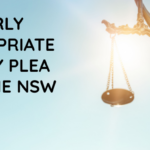How Much Will My Sentence Be Reduced If I Plead Guilty?

A 64-year old man facing 23 allegations of historical child sexual offences, including having sexual intercourse with a person under the age of 16-years, has changed his plea from not guilty to guilty just hours after his trial started.
The offences are alleged to have occurred in Eden on the far south coast of New South Wales between 1982 and 2013, and involved six female complainants.
The trial began yesterday before Judge Robert Newlinds in Bega District Court when the prosecution and defence gave their opening statements, before the first witness was called and gave evidence.
The court then adjourned for lunch and when it reconvened, the jury was told “the accused is going to change his plea” and was formally discharged.
The matter will return to court this morning when the pleas of guilty are expected to be formally entered and a statement of agreed facts tendered.
The matter is expected to then be adjourned for a sentencing hearing.
Sentencing discounts for guilty pleas in New South Wales
The law in New South Wales makes clear that a person who pleads guilty to a criminal offence is generally entitled to a reduced penalty, which is known as a ‘sentencing discount’.
The discount is for the ‘utilitarian value’ of the plea; in other words, the value it provides to the community in terms of saving time and money for law enforcement agencies and the courts, as well as preventing the need for witnesses such as the complainant and others from having to attend court to give evidence.
It is important to be aware that discount can reduce the length of the penalty that would otherwise have been handed-down (such as the length of a prison sentence) but can also change the type of penalty imposed (for example, result in an intensive correction order rather than a full-time custodial sentence).
This can represent a significant incentive for a person to plead guilty, especially coupled with the fact guilty pleas are dealt with more expeditiously and are financially less burdensome than cases that proceed to a defended hearing in the Local Court or a jury trial in the District or Supreme Court.
How much will my sentence be reduced if I plead guilty?
The rules that apply to sentencing discounts depend on whether the case is one that will be finalised in the Local Court, which are known as ‘summary cases’ (those which have a maximum prison sentence of 2 years or less) or indictable matters dealt with summarily (more serious cases whereby there is no ‘election’ to take it up to a higher court), or indicted cases – which are those ‘committed’ (referred) to a higher court such as the District or Supreme Court.
Cases dealt with in the Local Court
The rules for cases which are to be finalised in the Local Court are contained in section 22 of the Crimes (Sentencing Procedure) Act 1999, which states as follows:
“In passing sentence for an offence on an offender who has pleaded guilty to the offence, a court must take into account:
(a) the fact that the offender has pleaded guilty, and
(b) when the offender pleaded guilty or indicated an intention to plead guilty, and
(c) the circumstances in which the offender indicated an intention to plead guilty,
and may accordingly impose a lesser penalty than it would otherwise have imposed.”
The case law further explains that the utilitarian discount for a plea of guilty can be up to 25%, and will depend on a range of factors including:
- The stage at which the guilty plea was entered (an early guilty plea will generally attract a higher discount),
- The strength of the prosecution case (a guilty plea can be considered more valuable if it is entered despite problems in the prosecution case),
- The benefit to the community (saving time and money where there is a large prosecution brief and the defended hearing could have taken a lengthy period of time), and
- Any human suffering averted (eg where a complainant may have been heavily traumatised by having to testify at a defended hearing).
Cases referred to a higher court
Cases that are to be committed to a higher court such as the District or Supreme Court come under a different set of rules, which are contained in what is known as the Early Appropriate Guilty Plea (or EAGP) process.
Under the EAGP process, the discount that applies is as follows:
- 25% if the plea of guilty is entered in the Local Court; in other words, before it is referred to a higher court,
- 10% if the plea of guilty is entered in the higher court at least 14 days before the first scheduled trial date, or
- 5% if the guilty plea is entered thereafter.
The sentencing judge has the discretion to apply no discount at all or a that is less than that which is prescribed for cases of extreme culpability.
Going to court for a criminal offence?
If you have been accused of a criminal offence, it is important to contact an experienced team of specialist criminal lawyers in order to ensure that your interests are protected.








